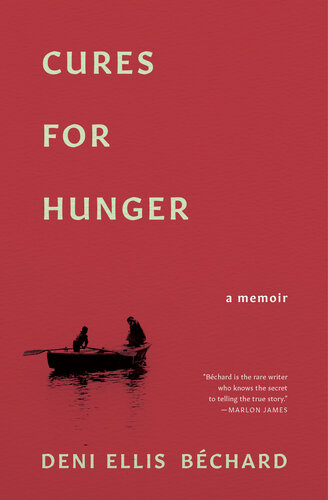
Cures for Hunger
A Memoir
فرمت کتاب
ebook
تاریخ انتشار
2012
نویسنده
Deni Ellis Béchardناشر
Milkweed Editionsشابک
9781571318626
کتاب های مرتبط
- اطلاعات
- نقد و بررسی
- دیدگاه کاربران
نقد و بررسی

May 28, 2012
In the opening pages of Béchard's memoir, we learn that his duplicitous, bank-robbing father, Andréâto whom the bulk of the book is devotedâcommitted suicide "in a house empty but for a single chairâ¦on the outskirts of Vancouver." Begun just three months after his father's death, Béchard's story is the result of "seventeen years of rewriting," and the process shows in the prose, which vacillates between that of a pretentious, if talented, young writer, and an adult whose understanding of his troubled youth has been refined by years of reflection and searching. Nevertheless, Béchard powerfully evokes the ever-present tension between the author and his parents ("Our family always seemed on the verge of disaster, and then the danger passed, and very little changed."), as well as his own struggle to emulate and escape his father. At once a quest to uncover the details of André's lifeâincluding his real name (Edwin), the town in Quebec from whence he came and the family he left there, and a criminal record that led one of André's sisters to remark, "âIl ne faisait rien à moitié.'âHe didn't do anything halfway."âBéchard's story is also one of personal discovery, and a teasing out of the function of memory: what it keeps, what it loses, and what it saves.

March 1, 2012
Bechard (Vandal Love, 2006) comes to terms with the painful legacy of his father, a suicide at 56. At first, the author's portrait of his childhood in British Columbia seems yet another snapshot of a dysfunctional family. Dad, reckless and macho, was always beating people up and getting visits from the police; he fought constantly with Mom, who eventually took the kids and returned to her native Virginia. By that time the author was 10, torn between admiration for his father's swaggering and fear of its consequences, Andre, as his wife and children called him, had assumed many names since leaving his French-Canadian family in provincial Quebec and embarking on a criminal career that included bank robbing and jail time. He went straight after he married but remained angry and conflicted, often telling Deni "you're like me" and seeming to half-want his son to take up his old lawless life. Bechard, who initially hated school but loved to read and yearned to write novels, didn't know what to make of his father's mixed signals or his own mixed feelings. His memoir gains power and clarity from the author's searching, scrupulously honest chronicle of a lengthy process of alternating alienation and reconciliation. Against considerable financial and emotional odds, Bechard entered college in Virginia. This act of defiance won him Andre's grudging respect and launched a series of late-night, long-distance conversations in which the elder Bechard mused over his turbulent life while the younger took notes and promised to write his father's stories. After years of refusing to discuss his origins, in their last phone call Andre gave his son his birth name and the names of his mother and hometown. Two years after his death, the author went to Quebec and confronted the roots of his father's malaise, in some ways preordained by family dynamics and yet fundamentally self-chosen. A poignant but rigorously unsentimental account of hard-won maturity.
COPYRIGHT(2012) Kirkus Reviews, ALL RIGHTS RESERVED.

May 1, 2012
Born in rural British Columbia, Bechard was torn between his perpetually fighting parents. While his father, Andre, taught him to race trains, fish for salmon, lie, and fight, his mother introduced him to healthy eating, spirituality, and reading. Between Andre's tall tales and the books he devoured, Bechard developed a hyperactive inner life, convincing himself it was him against the world. Then his mother reveals that Andre was a bank robber and remains a dangerous man. Bechard can't fathom his affable father as a bad person, nor can he understand why the police seem to be pursuing him. His mother moves him and his brother to Virginia, where he fights classmates and practices cursing. Restlessness eventually drives him away from home to stir up trouble of his own, making him increasingly curious about Andre's past. Bechard's memoir, to be published simultaneously with his novel Vandal Love, is a coming-of-age story of lost innocence, violence, and tenderness by a writer obsessed with the man who influenced him the most but was there the least.(Reprinted with permission of Booklist, copyright 2012, American Library Association.)

























دیدگاه کاربران